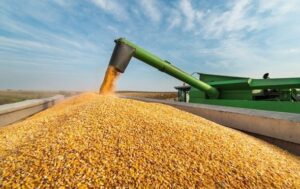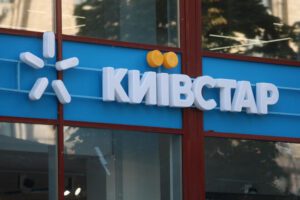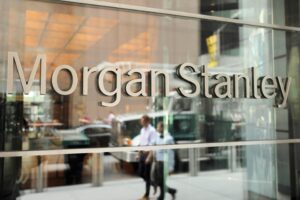
Ukraine since the beginning of this season and as of October 28 threshed 60.75 million tonnes of main grain and leguminous crops from a total area of 12.86 million hectares (a rise of 4.37 million tonnes in a week from October 21 to October 28), the Ministry of Agrarian Policy and Food reported on its website f on Friday.
According to the report, Kharkiv region with 4.61 million tonnes, as well as Odesa (4.58 million tonnes), Dnipropetrovsk (4.53 million tonnes), Mykolaiv (3.78 million tonnes), Vinnytsia (3.77 million tonnes) and Kherson (3.44 million) regions are leaders in threshing.
In total, 80.19 million tonnes of major grains, legumes, oilseeds (and sugar beets were dug out) from a total area of 20.89 million hectares have been harvested this season (a rise of 5.7 million tonnes in a week).
As the Ministry of Agrarian Policy said, as of the indicated date, 15.62 million tonnes of corn (a rise of 4.47 million tonnes) were harvested from 2.43 million hectares (44% of the forecast) and 13.56 million tonnes of sunflower (a rise of 0.88 million tonnes) from 5.87 million hectares (90% of the forecast).
In addition, farmers harvested 7.76 million tonnes (a rise of 1.53 million tonnes) of sugar beet from 164,630 hectares (73% of the forecast).
The ministry said that a total of 107,500 tonnes (a rise of 1,000 tonnes) of buckwheat was harvested from 81,600 hectares (98% of the forecast), and 178,800 tonnes of millet from 76,300 hectares (98%).
In addition, 3.05 million tonnes of soybeans (a rise of 450,000 tonnes) were harvested from 1.15 million hectares (90% of the forecast).
The Ministry of Agrarian Policy also recalled the completion of work on harvesting rapeseed, which harvested 2.91 million tonnes from an area of 1.01 million hectares.
The average yield of corn as of October 28 was 6.436 tonnes per ha, sunflower – 2.312 tonnes per ha, soybeans – 2.647 tonnes per ha, rapeseed – 2.86 tonnes per ha, sugar beet – 47.113 tonnes per ha, buckwheat – 1.38 tonnes per ha, millet – 2.344 tonnes per ha.

The mobile operator Kyivstar has received a partnership format extended to the level of Licensing Solution Provider (LSP), which gives the right to work with cloud solutions from Microsoft in the market of large enterprises and the public sector – to supply licensed products under corporate agreements and provide them with appropriate technical support.
As noted in a statement of the operator on Friday, earlier Kyivstar had a Cloud Services Provider (CSP) authorization, with which the company could sell online services and software licenses on a subscription basis, as well as perpetual licenses for local software.
The LSP status substantially complements these capabilities and allows Kyivstar to supply Microsoft products to the Ukrainian market under the Enterprise Agreement (EA) and Enterprise Agreement Subscription (EAS) corporate licensing programs.
“For more than five years, Kyivstar has been developing the direction of selling cloud products for the company’s business clients […] The LSP status that we have received is granted to the largest and most reliable Microsoft partners who have confirmed their professionalism in working with cloud products of the world-famous corporation. It enables Kyivstar to create unique offers for business based on the needs of specific clients,” Ilya Polshakov, Director of New Business Development at Kyivstar, is quoted in the message.
The company notes that the combination of Kyivstar’s CSP and LSP capabilities enables the operator to provide business customers with: an expanded set of Microsoft licensed solutions; new opportunities for the development of hybrid solutions; access to licensing agreements that take into account the needs of companies of different tiers; the ability to negotiate non-standard conditions with Microsoft, as well as the expertise and assistance of qualified specialists in selecting the optimal licensing strategy for the needs of a particular business.
Kyivstar is the largest Ukrainian telecommunications operator. It provides communication and data transmission services based on a wide range of mobile and fixed technologies, including 3G. By the end of 2018, its services were used by about 26.4 million mobile subscribers and about 900,000 fixed Internet customers.
The shareholder of Kyivstar is the international group VEON (formerly VimpelCom Ltd.). The group’s shares are listed on the NASDAQ (New York) stock exchange.

Electricity production in the Integrated Power System (IPS) of Ukraine in January-September 2021 grew by 6.2% (by 6.702 billion kWh) compared to the same period in 2020, to 114.375 billion kWh, according to data from the Ministry of Energy.
According to the calculations of Interfax-Ukraine, nuclear power plants (NPPs) in January-September 2021 increased electricity generation by 9.1%, to 61.946 billion kWh. In particular, production at the Zaporizhia NPP amounted to 25.382 billion kWh (a rise of 26.3% versus January-September 2020), Yuzhnoukrainsk NPP – 13 billion 237.5 million kWh (1.8% less), Rivne NPP – 14.474 billion kWh (0.5% more), Khmelnytska NPP – 8.852 billion 852.1 million kWh (0.6% more).
Thermal power plants (TPPs), as well as combined heat and power plants (CHPPs) and cogeneration plants reduced their output by 4.9%, to 33.308 billion kWh, including generating companies, TPPs increased production by 2.4%, to 26.732 billion kWh, while CHP and cogeneration plants decreased by 26.2%, to 6.575 billion kWh.
Hydro and pumped storage power plants (HPPs and PSPPs) increased production by 45.4%, to 8.139 billion kWh, while block stations decreased by 12.8%, to 1.24 billion kWh.
Electricity production by alternative sources (wind farms, solar power plants, biomass) increased by 10%, to 9.743 billion kWh.
The share of nuclear power plants in the structure of electricity production amounted to 54.2% (in January-September 2020 it was 52.7%), thermal power plants, thermal power plants and cogeneration plants – 29.1% (32.5%), hydroelectric power plants and pumped storage power plants – 7.1% (5.2%), block stations – 1.1% (1.3%), alternative sources – 8.5% (8.2%).
In September 2021, electricity production in the IPS of Ukraine grew by 4.1% (by 457.7 million kWh) compared to the same month last year, to 11.735 billion kWh.
In addition, the supply of heat energy in January-September 2021 rose by 12.1% (by 1.604 million Gcal) compared to the same period last year, to 14.833 million Gcal.

The status of an ASF-positive country complicates the opening of new markets for pork exports from Ukraine, but negotiations are ongoing with a number of other countries, including South Africa, Vietnam, Hong Kong and Singapore.
The results of the meeting of representatives of the Association Pig Breeders of Ukraine with Director of the Department of International Communications of Internal and External Relations of the State Service for Food Safety and Consumer Protection Kostiantyn Paskevych were reported on the organization’s website on Wednesday.
According to the association, five countries, including China and South Korea, have suspended negotiations on the admission of domestic pig products to their markets due to the spread of African swine fever (ASF) in Ukraine, but negotiations are ongoing with a number of other countries.
“The State Service for Food Safety and Consumer Protection sent a request to open the South African market for the export of pig meat, so now we are waiting for a response and a list of their accreditation requirements. The corresponding requirements from Vietnam have already been worked out, so at the end of June they were sent for further consideration and assessment. Negotiations with Hong Kong are at the same stage,” the association said, citing Paskevych’s data.
The association said that since March 2021, the Ukrainian side has been working on accreditation requirements for the supply of chilled and frozen pork to Singapore. At the same time, the countries agreed on the export of canned pork products from Ukraine.

PrJSC Ukrainian Insurance Group (Kyiv) in January-September 2021 collected UAH 1.072 billion in net premiums, which is 8% more than in the same period in 2020.
According to the company’s report, posted in the information disclosure system of the National Securities and Stock Market Commission, its gross premiums for this period increased by 22.3% – to UAH 1.673 billion. Some UAH 620.292 million (more by 73.4%) was transferred to reinsurance.
For the nine months the company paid out UAH 451.034 million, which is 1.2% more than in the same period a year earlier.
Administrative expenses of the company amounted to UAH 75.370 million (more by 23%), sales expenses – UAH 491.644 million (more by 16.6%)
The pretax financial result amounted to UAH 60.896 million, which is almost three times less than in the nine months of 2020. Net profit amounted to UAH 7.861 million against UAH 105.932 million profit for the same period a year earlier.
Ukrainian Insurance Group is a company with 100% foreign capital. It has been working in the Ukrainian conventional insurance market since 2000. It is part of one of the world’s largest insurance groups, the market leader in Central and Eastern Europe – Vienna Insurance.

Analysts from Morgan Stanley have maintained an estimate of Ukraine’s GDP growth in 2021 at 3.4%, and 4.2% in 2022, according to the forecast materials available to the Interfax-Ukraine agency.
According to the forecast, inflation in Ukraine will decrease to 9.5% by the end of 2021 and to 5.7% by the end of 2022.
Morgan Stanley experts also forecast a current account deficit of 0.5% of GDP in 2021 and 2.5% in 2022.
They expect that the International Monetary Fund’s Stand-By Arrangement is likely to be extended by six months – until the end of June 2022.